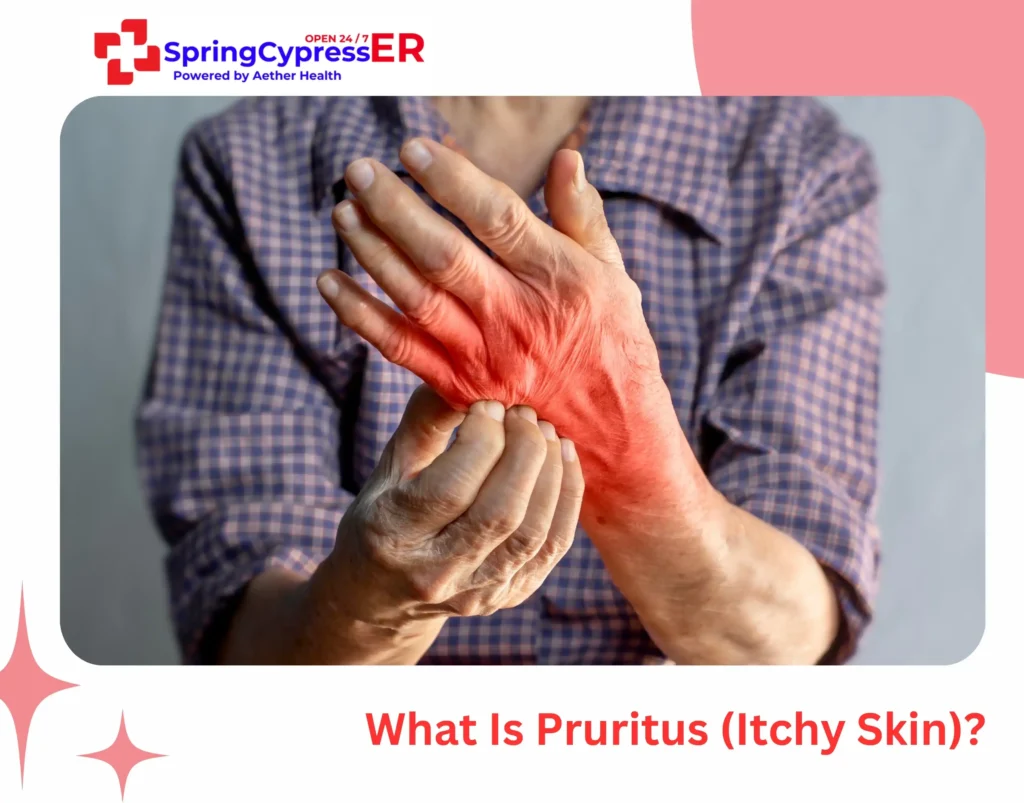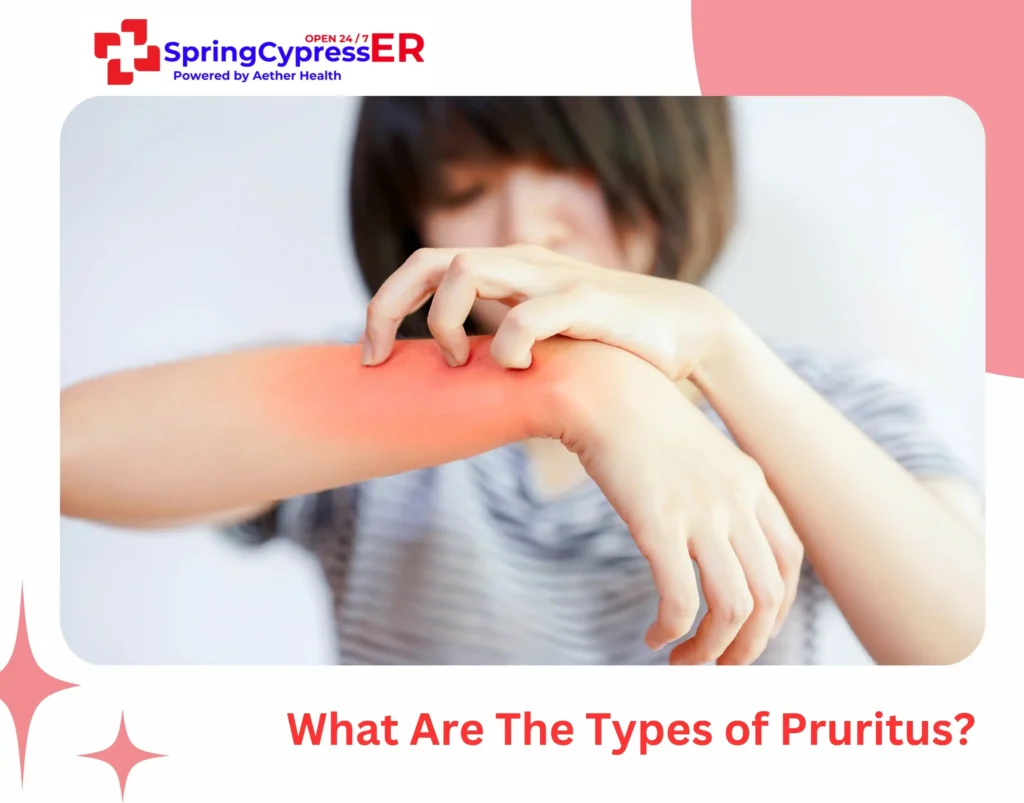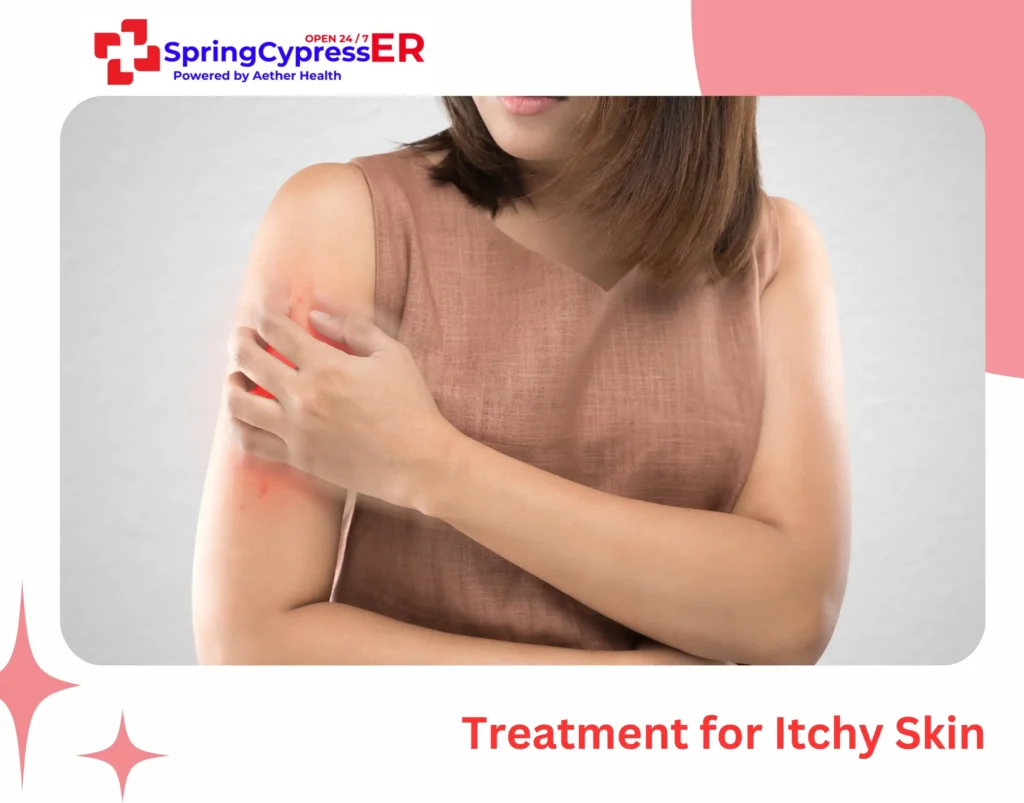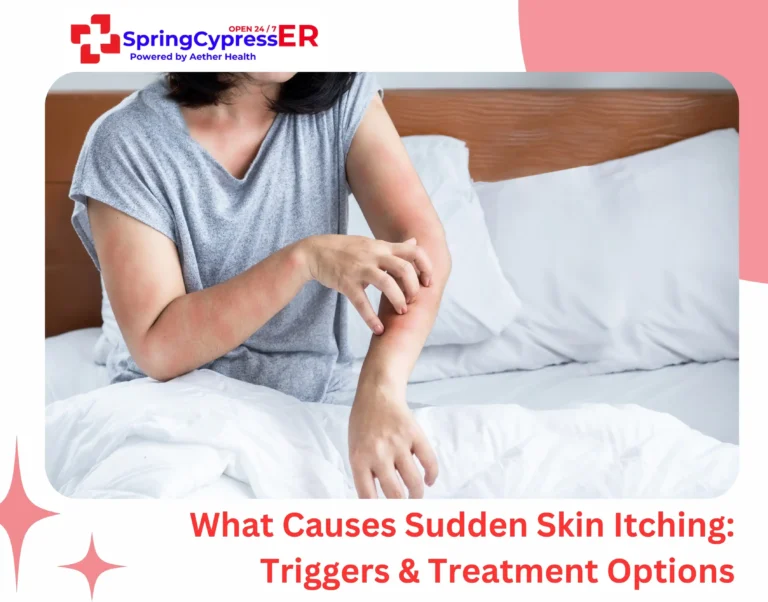Your skin suddenly erupts in intense itching with no obvious cause. No new soap, detergent, or fabric; just relentless scratching that won’t stop.
Understanding what causes sudden skin itching becomes crucial when it affects nearly 25% of people at some point¹. Most itching resolves within days with proper medications, but chronic cases take weeks or months to clear.
The causes of sudden skin itching often remain unknown, but underlying conditions like skin infections, bacterial issues, or fungal problems frequently trigger symptoms. Let’s understand where your itching may be coming from and how you can get some soothing relief.
What Is Pruritus (Itchy Skin)?

Pruritus, or itchy skin, is the sensation that makes you want to scratch your skin. This feeling can target a single spot or spread across multiple body areas, ranging from mildly annoying to severely painful.
Itching happens when nerve fibers detect triggers and send signals to your brain. Common triggers include dry skin, allergens, infections, medications, or underlying health conditions. Your body interprets these signals as the need to scratch the affected area.
Pruritus isn’t a disease itself but a symptom pointing to other issues. Skin conditions like eczema or psoriasis commonly cause itching, as do allergic reactions and systemic diseases affecting the liver or kidneys. While scratching provides temporary relief, it often worsens the problem by causing redness, skin thickening, and inflammation.
What Causes Sudden Skin Itching? 5 Major Causes
Itchy skin can result from internal diseases, nervous system disorders, allergies, medications, and environmental triggers. Let’s look at each in detail:
1. Skin Disorders
Several skin conditions cause immediate itching sensations:
- Xerosis (Dry Skin): Low humidity, harsh weather, and strong soaps strip skin moisture, creating tight, itchy patches.
- Eczema: This chronic inflammatory condition creates red, scaly areas with persistent itching that often worsens at night.
- Allergic Contact Dermatitis: Direct contact with irritants like chemicals, metals, or certain fabrics triggers immediate itching and rash.
- Urticaria or Hives: These are raised, itchy welts often linked to allergic reactions or infections.
- Parasitic Infections: Scabies mites and lice cause intense itching, especially at night.
- Infections: Bacterial, fungal, and viral infections like folliculitis or shingles create localized itching.
2. Systemic (Internal) Disorders
Itching without visible skin changes often signals internal issues. The underlying causes include:
- Liver and Gallbladder Issues: Hepatitis, bile duct blockages, and jaundice cause widespread itching as toxins accumulate.
- Kidney Disease: Chronic kidney failure creates persistent, generalized itching throughout the body.
- Thyroid Problems: Both overactive and underactive thyroid conditions trigger skin sensitivity.
- Blood Disorders: Leukemia and lymphoma may cause itching before other symptoms appear.
- Other Conditions: Diabetes, iron deficiency anemia, and autoimmune diseases frequently include itching symptoms.
3. Psychiatric Issues
Mental and emotional states directly affect skin sensations. Stress and anxiety trigger your body to release histamine and adrenaline, creating false allergic responses that cause itching without visible skin damage.
This psychogenic itching becomes a cycle. Stress causes itching, which increases anxiety, leading to more scratching and irritation.
4. Medications and Substances
Drug-induced itching affects 5-10% of people globally. Such itching may appear as:
- Acute reactions: Sudden onset lasting less than 6 weeks
- Chronic reactions: Persistent itching lasting more than 6 weeks
Common culprits include antibiotics, pain medications, and antimalarial drugs. Some medications cause itching in specific populations. For instance, chloroquine, an antimalarial commonly prescribed, has been reported to cause itching in up to 70% of Black African patients².
5. Pregnancy
Pregnancy can also cause sudden itching through physical and hormonal changes. Growing babies stretch skin across the belly, breasts, and thighs, causing mild to moderate itching.
Hormonal fluctuations also increase skin sensitivity, making previously tolerated substances suddenly irritating.
What Are The Types of Pruritus?

The International Forum for the Study of Itch (IFSI) categorizes itchy skin into three distinct types, based on clinical signs and the state of the skin. Here’s the breakdown for it:
Group I: Pruritus on Diseased (Inflamed) Skin
It’s defined as itching with obvious skin changes, such as redness, rash, scaling, or papules. The following skin disorders fall into this category:
- Atopic dermatitis (eczema)
- Psoriasis
- Contact dermatitis
- Allergic reactions
- Scabies or fungal infection
Group II: Pruritus on Non-Diseased Skin
In this category, itching occurs without any skin changes. Your skin is clear with no visible rash or inflammation. This condition is often associated with systemic causes such as liver or kidney disease, and disorders of the thyroid gland. Some neurological conditions (such as peripheral nerve injury), or certain psychological disorders (stress and anxiety) can also trigger pruritus on non-diseased skin.
Group III: Pruritus With Excessive Chronic Scratch Lesions
This grouping comprises patients suffering from long-term itching, leading to damage to the skin from prolonged scratching. The skin appears sclerotic and dead with thickened patches, forming scars.
Treatment for Itchy Skin

Managing sudden itching depends on the underlying cause, but several approaches provide relief:
- Moisturize regularly: Since dry skin triggers most itching episodes, apply fragrance-free moisturizers while skin is still damp from bathing.
- Use topical treatments: Over-the-counter hydrocortisone cream reduces inflammation and associated itching for short-term relief.
- Apply cold therapy: Ice packs or cool compresses numb nerve endings and temporarily stops the itch sensation.
- Try natural remedies: Aloe vera gel soothes irritated skin, while coconut oil provides natural moisture for dry, cracked areas.
- Avoid triggers: Identify and eliminate known irritants like harsh soaps, tight clothing, or specific fabrics.
- Take antihistamines: Certain oral medications help control allergic reactions causing widespread itching.
Note: Always consult your healthcare provider before starting any medication.
When to Seek Help for Sudden Skin Itching
Sudden skin itching stems from various causes, including dry skin, eczema, allergies, or internal conditions affecting the liver and kidneys. Stress and anxiety also trigger itching through chemical responses in your body.
Most cases respond well to moisturizing, topical treatments, and avoiding known triggers. However, persistent itching accompanied by breathing problems, widespread rash, or swelling requires immediate medical attention for proper diagnosis and treatment.
FAQs
1. What causes sudden skin itching without a rash?
Sudden itching without visible rash often indicates internal problems like liver disease, kidney issues, thyroid disorders, or blood conditions. Stress and certain medications also trigger invisible itching.
2. When should I see a doctor for sudden itching?
Seek immediate medical care if itching occurs with difficulty breathing, facial swelling, widespread rash, or fever. Persistent itching lasting over two weeks also warrants professional evaluation.
3. Can stress really cause skin itching?
Yes, stress triggers your body to release histamine and adrenaline, creating false allergic responses that cause real itching sensations without any visible skin damage or rash.
4. How can I stop sudden itching at home?
Apply cold compresses, use fragrance-free moisturizers, try aloe vera gel, and avoid known triggers like harsh soaps. Over-the-counter hydrocortisone cream helps reduce inflammation temporarily.




